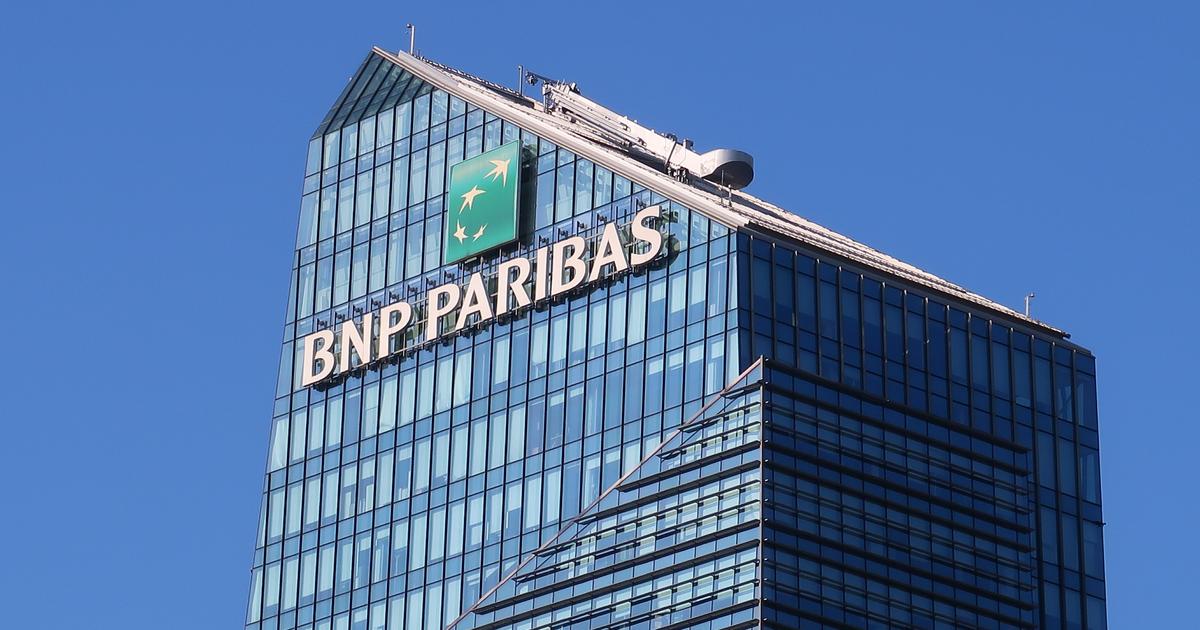Enlarge image
Photo: Yellow Man/Getty Images/iStockphoto
A good three months ago I asked you at this point to take care of the interest again - interest on your savings, which has practically not existed for years.
Now I want to reinforce this appeal.
You absolutely have to compare interest rates, take care of your savings, probably take out a fixed-term deposit, otherwise others will legally reap the fruits of your savings efforts.
The zero-interest phase is over, for you too
Let's go back 18 months: The inflation rate rose sharply, but the banks in this country paid their customers practically no interest on any conceivable account.
When asked why they don't do their job, i.e. channel customers' money into lucrative loans, share the income with customers and thus make it possible to earn interest on savings, it was repeatedly said that the European Central Bank (ECB) would with its zero interest rate -Politics spoil the prices.
Why should a bank pay savers interest when you can get cheap money for 0 percent from the ECB?
In December, however, the ECB raised the interest rate on deposits to two percent.
This means that if your bank simply parks your savings at the ECB, it will get 2 percent interest on it - and from next Wednesday, with the rate hike decided this week, even 2.5 percent.
For doing nothing, for money parking.
The bank could pass this 2.5 percent on to you.
But most banks still pay their customers practically nothing.
There is another way: Online brokers such as Trade Republic and Scalable Capital make a service offer for their customers out of the interest rates of the ECB.
If you park EUR 50,000 there in your account, which you use for securities transactions, for example, you will receive 2 or 2.3 percent interest.
Because this is a deposit account, however, you as a customer will also hear the lure of the stock market every time you look at your savings interest.
The courses flicker in the online account.
After all, the business idea of these interest rate scabs is to sell you securities.
Which is a good idea in principle, but it has to be the right people.
More on that later.
2.0 to 3.5 percent – do not beat inflation, but moderate it
Inflation was 7.9 percent last year, and expect high inflation again this year.
For you as a customer, the only consequence of this can only be to focus on the highest possible interest rates when saving for the short and medium term.
And that in turn means comparing offers from banks much more intensively than in previous years.
If your house bank paid 0.01 percent interest per year a year and a half ago and there was 0.1 percent on the call money account of another bank, then 10,000 euros at your house bank became 10,001 euros and at the competitor bank 10,010 euros.
If you kept your money market account well filled with 10,000 euros, you collected a maximum of 50 euros in interest in five years.
Today, your house bank may pay 0.4 percent interest, some savings banks such as the Ostsee-Sparkasse Rostock still do not give any interest at all for overnight money.
But the best banks offer around 2 percent.
If it stays that way, your 10,000 euros would become at least 11,000 euros within five years.
Even more striking are the differences in fixed deposits.
Let's say you actually have 50,000 euros available in your fixed deposit account soon.
This is not uncommon, especially for older savers.
The Kreissparkasse Köln is currently offering fixed-term deposits for three years at just 0.8 percent per year.
As an existing customer, Deutsche Bank offers you at least 1.5 percent for three years.
After three years, the 50,000 euros would become 52,284 euros.
At the Kreissparkasse it would only be 51,210 euros.
That's a difference of more than 1000 euros.
However, the top offers with reputable state deposit insurance are already at 3.3 percent interest for the three-year fixed deposit.
CACF offers that, a subsidiary of the French Crédit Agricole.
The 50,000 euros you saved would become 55,115 euros within three years – 4,000 euros more than at the Sparkasse and still almost 3,000 euros more than at Deutsche Bank.
You should not forego this interest.
You will also find attractive offers in Germany: The Ford Bank of the car company of the same name is based in Cologne and pays 3.1 percent interest for three years, the Südwest-Kreditbank (SWK) in Bingen am Rhein gives 2.8 percent.
Incidentally, domestic banks take care of the taxation of the interest, which is mostly up to you abroad.
Internet is a must for female investors
Some somewhat older savers still have no Internet access or do not do any banking online.
If you haven't done that yet, you should rethink.
If in doubt, take a course at the adult education center or even a further training course at your house bank.
You don't have 4,000 euros in interest to give away.
And if you wanted to give away so much money, then certainly not to your bank.
Online banking is really important.
You should also learn how to use it so that you don't fall for any scam offers.
Six percent return in the classifieds or the TV magazine - that's not serious.
Such returns are not guaranteed, but only with a residual risk.
Interest alone is not enough
Higher interest rates are part of your future savings, but even with significantly higher interest rates, you probably won't beat inflation.
Therefore, if you are investing for the long term, you should consider global equity index funds (ETFs for short).
First, because the international stock markets tracked by such ETFs have actually returned 7 to 9 percent per year over the past 40 years.
And secondly, because with such ETFs the risk of a loss on the stock market tends to be zero after 15 years.
If you had invested 10,000 euros in a global ETF at any time in the past 40 years, you would always have gotten your money back nominally after 15 years, no matter which financial crisis was raging at the time.
It is much more likely that your 10,000 euros would have turned into between 27,000 and 30,000 euros.
In some 15-year periods, returns of more than 10 percent per year were possible.
That means your 10,000 euros would have become 42,000 euros.
Don't say now that you're 65 and that investing for 15 years is no longer worthwhile.
Many retirees are turning 90 or older today.
You have plenty of time - at least for part of your money.
Of course, you can also simply use up another part for a nice trip, a new conservatory, an ultra-modern heating system or the conversion that allows you to still use your dream house at 90 years of age.
In any case, the new interest rates are sufficient for a hiking holiday in France or a long bathing holiday on the Baltic Sea.
And if your share portfolio develops positively, take the whole extended family with you.














